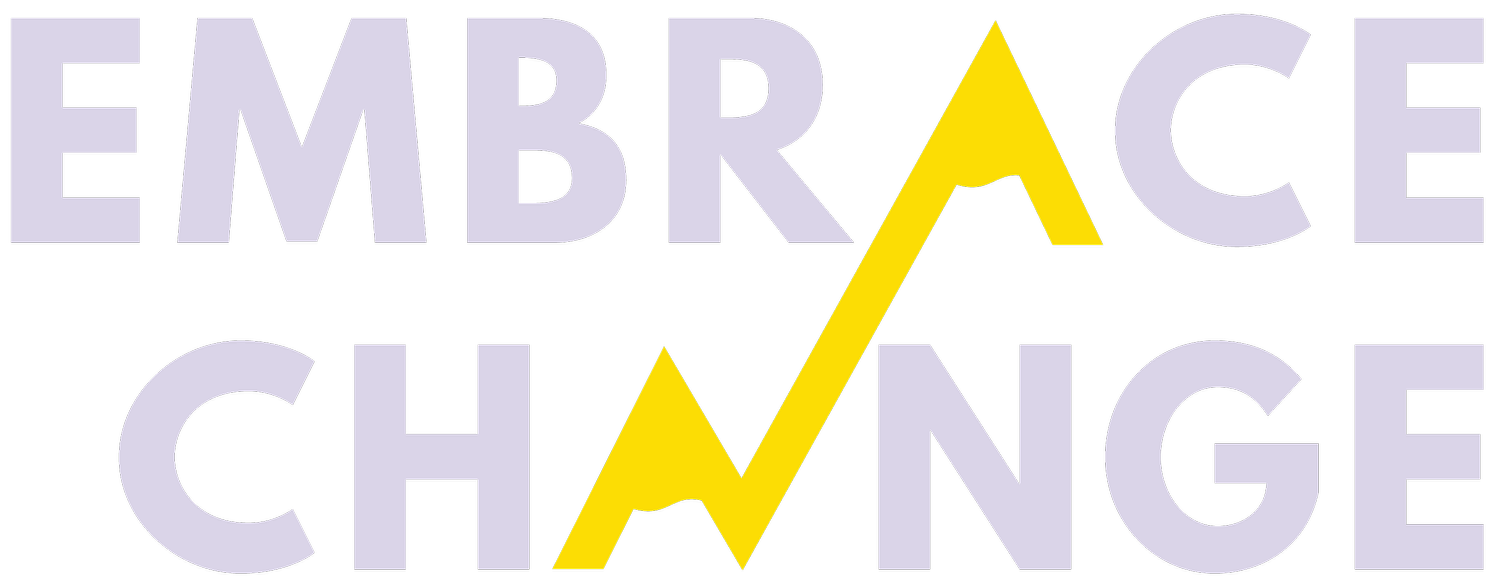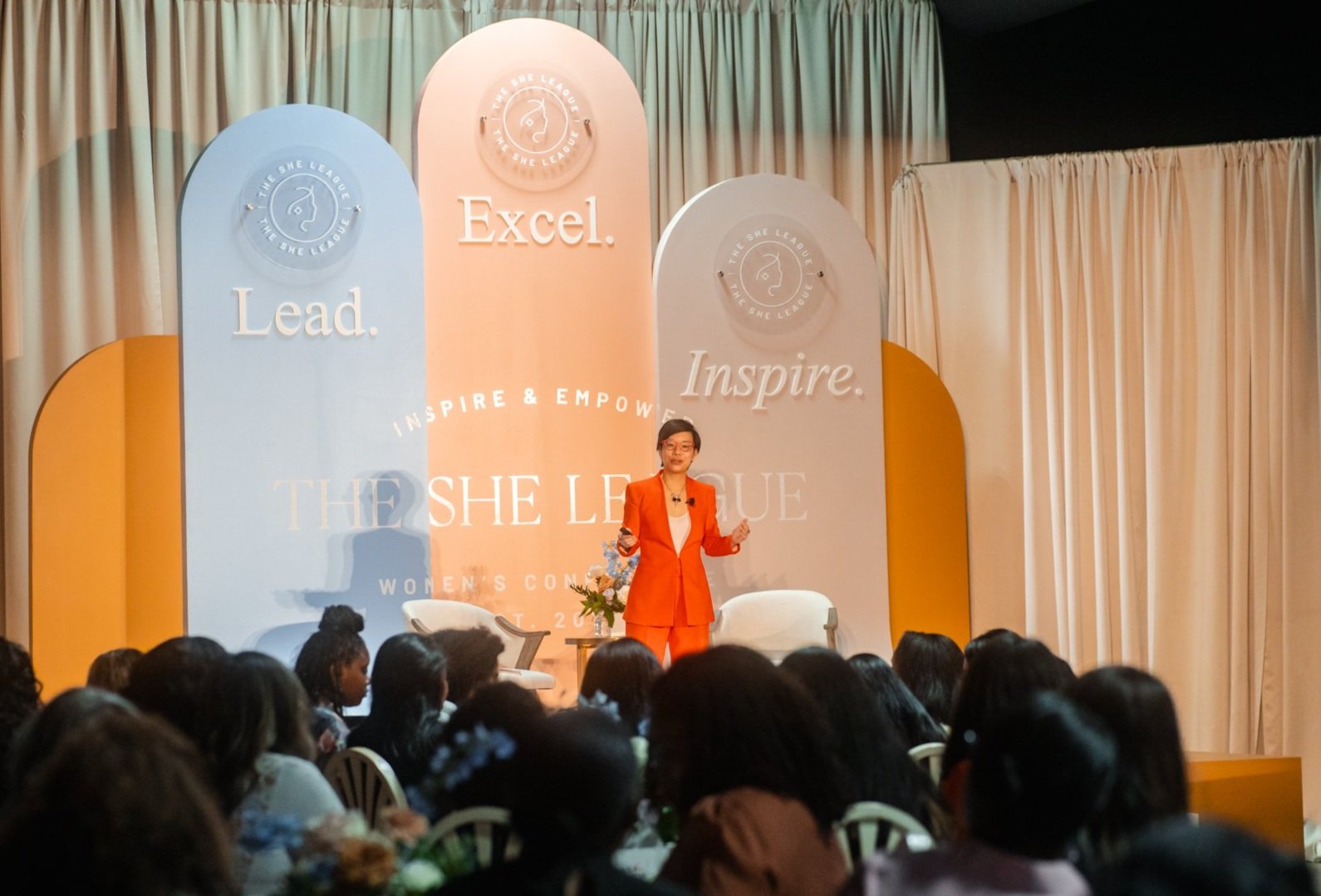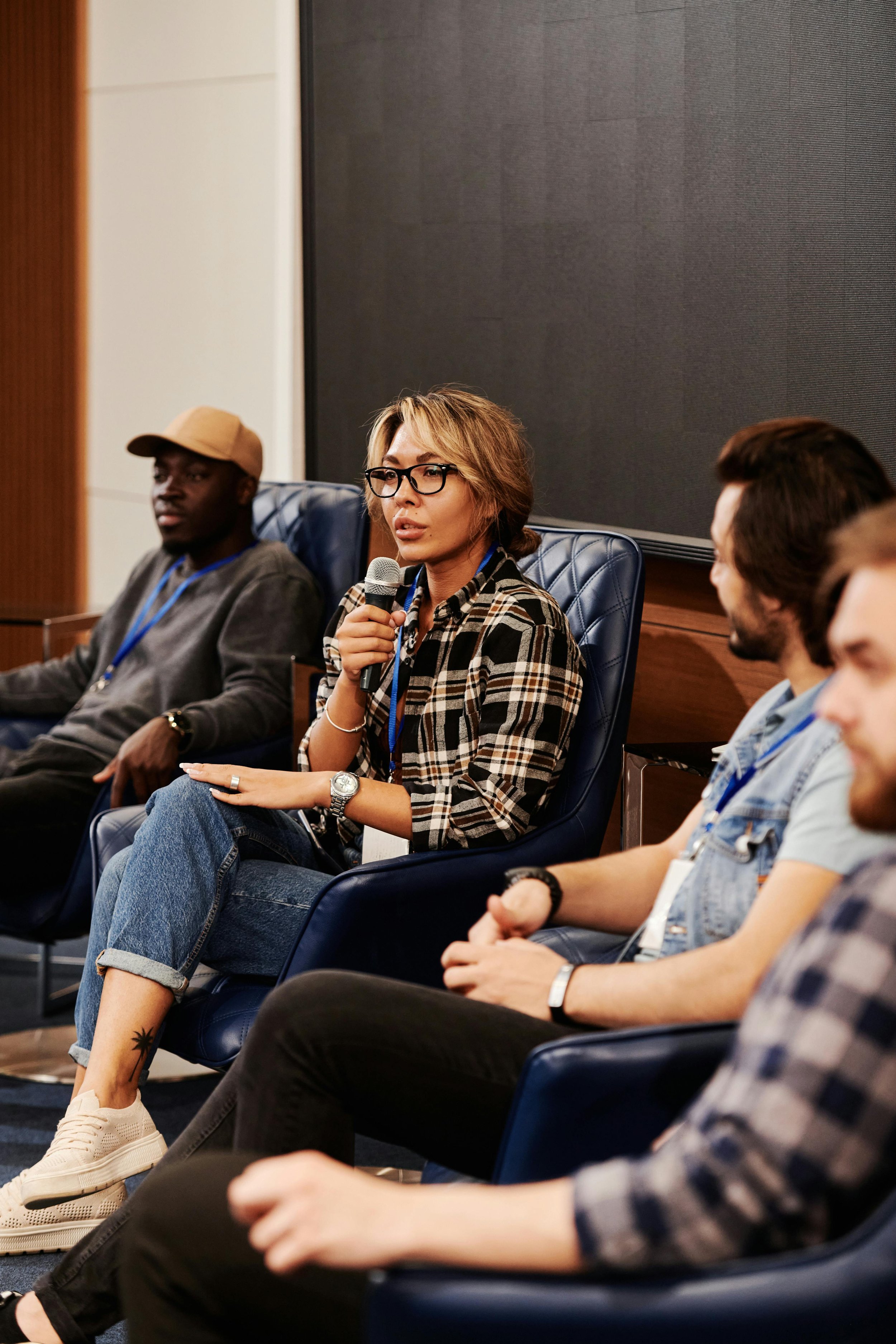Planning the Perfect History or Heritage Month Event: 5 Key Considerations for Success
As companies everywhere strive to create and support increasingly diverse, global, inclusive workplaces, celebrating history months and heritage weeks continues to be a highly effective way to recognize, acknowledge, and honor the contributions of various communities–while providing a valuable learning, growth, and development opportunity for larger groups within the company as well.
Having spoken to over 20,000 people at hundreds of events, I’ve found that the best events have a number of things in common when it comes to the planning and execution. It won’t be a surprise that the more thoughtfully planned ones tend to have more successful and concrete outcomes. But it also doesn’t take much, as a threshold, to cover your bases and put on an incredible experience that’s a win-win-win. (In fact, I have a handy 6-Point Checklist for Exceptional Workplace Events for those planning events from the company-side to maximize your chances of a smooth and successful planning period–and ultimately an awesome event on the other side! Download it for free here.)
From Black History Month and Women's History Month to Asian American and Native Hawaiian/Pacific Islander (AANHPI) Heritage Month, Pride Month to Latino / Hispanic History Month, Mental Health Awareness Month, Native American History Month, and Black August, workplace events during these times offer an opportunity to educate, engage, and uplift employees. Even shorter heritage weeks and commemorative days (International Women’s Day, Southeast Asian Heritage Week, Juneteenth, Women’s Entrepreneurship Week) provide a valuable opportunity to connect, build community, and strengthen employees’ skill sets.
When done well, bringing in external facilitators and guest speakers for history month and similar events can offer a number of benefits for your company, including:
Bolstering your organization's reputation with the general public, as well as existing clients and customers
Boosting morale and increasing employee engagement, particularly during times of burnout or high turnover
Strengthening your ability to recruit top talent who value positive, engaged, and supportive workplaces
Decreasing the burden on existing staff to provide all training, professional development, entertainment, and coaching in-house
By carefully planning your event, including selecting the right facilitator or guest speaker to partner with, you can create an event that not only celebrates and uplifts employees at your organization, but also offers concrete benefits for the company as a whole.
In this blog post, we'll cover 5 key factors to keep in mind when organizing these important events and celebrations.
Understanding Your "Why"
Before diving into the logistics and nitty gritty details, make sure you understand and clarify the "why" behind your event. Consider the larger context of the history or heritage month, the professional development needs at play, as well as other considerations and goals you may have from an HR, L&D, or ERG perspective. Sometimes what you’re aiming to solve for wouldn’t best be addressed through putting on “yet another event” that your employees and colleagues may or may not want to attend.
On the other hand, there certainly are valid reasons to host an event, including:
Addressing increasing burnout among employees
Educating certain communities about a particular issue
Supporting a specific group with hard career skills and strategies
Tackling retention and employee engagement concerns
Fostering a sense of belonging and inclusion within your organization
Promoting allyship, awareness, and understanding among different communities
Whatever your reasons are, understanding and getting clear on your "why" in the early stages of planning will ultimately save you time, money, and angst! It’ll also ensure that all the details that flow from there–the content, the format, the speaker(s)–will be optimized for success!
Clarifying Your Audience
Once you've established the "why," the next question to ask is, "Who is this event for?" Consider the following:
Is it exclusively for members of the community being celebrated?
Are you opening it up to all staff?
Is there an option for something in between, like inviting allies to participate, but letting folks know that a particular group’s perspectives and voices will be centered?
There are pros and cons to each approach. Holding a community-specific event can create a safe space for individuals to share their experiences and connect with one another, fostering a sense of belonging. That’s more effective for deeper community building.
On the other hand, inviting all staff can promote allyship and understanding, helping to break down barriers and create a more inclusive workplace culture. It can also support broader community building–I often hear from event organizers after the fact that the best part was connecting with colleagues across verticals / departments and/or geographic office locations! Ultimately, the decision will depend on your organization's goals and the needs of your employees.
Setting Clear Goals and Vision
Having a well-defined vision will guide your planning process and ensure that your event has a meaningful impact. When approached to facilitate events or deliver workshops, I always ask company leaders (whether they’re professional development professionals, learning and development professionals, ERG leaders, or others): What would make you feel "over the moon" afterwards? Because how can you hit a bullseye if you don’t even know where the target is!
So in planning your event, consider the following:
Do you want participants to walk away with concrete takeaways and actionable strategies? If so, what are they?
Are you aiming for a renewed sense of engagement and connection to their work, department, ERG, colleagues, company, or company mission?
Is your goal to educate and raise awareness about a particular issue or community?
Clearly articulating your goals and vision will help you create an event that resonates with your audience and achieves your desired outcomes.
Choosing the Right Facilitator or Guest
For events that are facilitated (keynotes, workshops, panels, fireside chats, etc.), the success of your history month event will hinge on the quality of your facilitator or guest speaker(s). When selecting a workshop facilitator, career expert, or workplace expert, consider the following:
Do you want someone with a specific background, set of identities, or skill set?
Are you looking for engaging, "edutainment" style content, or a more traditional presentation?
If you're planning a panel discussion, do you want a moderator who’s skilled at facilitating meaningful conversations, ad libbing to draw connections for attendees––or are you okay with someone simply asking pre-determined questions to the panelists?
It's also important to reflect on past experiences with facilitators, whether your own or those of your predecessors and event organizers of the past:
Have you brought in facilitators who've resonated with your group in the past? Is it time for an encore, as it were? If it ain’t broke…
Have you hired facilitators in the past who did not hit the mark for you, and you're looking for something different?
If so, what do you want improved upon for this time around?
Be sure to list out the reasons they did not meet your expectations and share this with future facilitators so that continuous improvement can occur. Digging deeper here can really pay off and result in an awesome event.
Coordinating the Logistics
Finally, don't forget to iron out the logistics for your event. Some basics to get clear on:
Is this a virtual, in-person, or hybrid event?
What format and length did you have in mind? Common formats and some tips:
Workshop (usually 60-90 minutes)
Keynote (usually 20-40 minutes)
Panel (I recommend no more than 3 panelists for a one-hour session, with a skilled moderator being a major consideration for success)
Fireside chat (same caveat about booking a skilled moderator to be in conversation with your guest speaker)
Community-centered event (with a facilitator moderating a conversation and experience for participants)
Emcee or host for a longer half-day or full-day event (look for someone who is engaging, adaptable, and able to keep the event running smoothly)
What dates are likely to yield the highest turnout for your group, ensuring maximum ROI for you and your company?
Do you have a plan to promote the event internally, and what support do you need on strengthening and/or executing it?
For virtual events that will be recorded, do you want to share in advance that the event will be recorded? (Keep in mind that attendance may decrease if participants know a recording will be available later, even if they ultimately do not watch it.)
Conclusion
Planning a history or heritage month event is a wonderful opportunity to celebrate community at work, foster inclusion, and build skills and understanding within your organization. By following my 5 key steps–understanding the "why," defining your audience, setting clear goals and vision, choosing the right facilitator or guest, and ironing out the logistics–you can create a meaningful and impactful event that resonates with your employees. And that they’ll be talking about for months to come!
If you’re looking for an engaging, one-of-a-kind event for your workplace, check out the speakers and facilitators on our WOC Speakers Bureau! Whatever your needs, we’ve got you covered. More about Cynthia Pong’s speaking can be found here.



